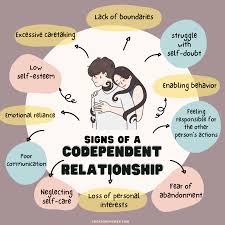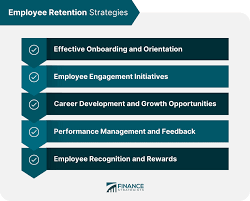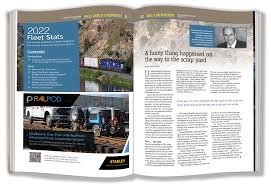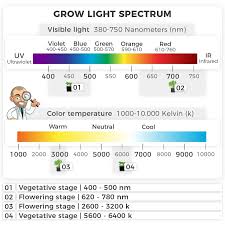We tell you what a brand manager does and how much he earns, what skills he needs for work and how to get into this profession.
What does a brand manager do?
How a brand manager differs from other specialists
Pros and Cons of Being a Brand Manager
What a brand manager should know and be able to do
Career growth prospects
Average salaries of brand managers
How to become a brand manager
What does a brand manager do?
Table of Contents
Let’s envision that you simply have to be select pasta to cook pasta for supper. There are handfuls of diverse bundles on the racks. How to choose from them?
Brands come to the rescue. They create a “shell” of the product that tells what kind of product it is, why and who needs it. The brand makes the product recognizable and helps consumers distinguish it from competitors.
For example, the international pasta brand Barilla emphasizes Italian flavor.
That is, the consumer associates Barilla pasta with Italy. Associations, emotions, images – all this is the basis of the brand.
A brand is a representation of a company, product or service in the mind of the consumer.
The brand manager creates these ideas and then fixes them in the minds of the audience using various channels: social networks, TV commercials, and Internet banners.
The tasks of a brand manager are varied. He analyzes the market, consumers, competitors, selects channels for promotion, evaluates their effectiveness. All this helps the brand manager influence the product, service and communications. In this way, he shapes the opinion of consumers and persuades them to buy his product, not competitors.
Read Also:Health Insurance Marketplace: Quick Overview
How a brand manager differs from other specialists
A brand manager helps a product sell. But sales are affected by many factors: service, pricing, availability of orders at retail outlets, advertising promotion. Other specialists are responsible for all of this.
In general, the responsibilities that are not included in the work of a brand manager can be presented as follows.
Now let’s look at it in more detail.
Does not sell directly
The brand manager provides the sales department with information about positioning, unique selling points of products, current marketing activities, but does not negotiate deals or discuss terms with each partner. This is done by sales specialists.
Does not engage in technical development of a new product
A brand manager creates a product idea, not the product itself. He tests the product concept, manages the packaging creation process, checks how satisfied consumers are with the finished product. And the product itself is produced by other people – technologists and designers.
Does not deal with procurement and logistics
A brand manager must understand how the product procurement and logistics process works. But he does not need to negotiate prices, place orders, and set up logistics. Purchasing and logistics specialists are responsible for this.
Does not create communications and events
A brand manager understands what is important to the consumer, but these meanings are conveyed by employees of creative agencies, freelance specialists or within the company.
These people create websites and catalogs, manage social networks, select props for events, and perform other tasks related to brand development and product promotion. The brand manager sets these tasks and ensures that they are completed efficiently and on time, and that the results of the work reflect the overall concept of the brand.
What a brand manager should know and be able to do
- analytics,
- planning,
- creativity,
- management.
Let’s look at each of the blocks.
Analytics
The main analytical skills of a brand manager include systems thinking, the ability to build hypotheses and critically evaluate information.
Systems thinking is about understanding the specifics of a situation as a whole.
Systems thinking allows you to not miss details and perceive them as interconnected elements. By thinking systems, a brand manager understands why his company achieves or does not achieve its goals.
Based on this understanding, the brand manager builds hypotheses .
A hypothesis is a suggestion about why something happened.
For example, a soda company saw its sales drop. The brand manager hypothesized that this was due to the loss of its teenage audience.
This hypothesis needs to be tested – independently or with the help of analysts.
It is also important for a brand manager to engage in critical thinking – to analyze and question the information received.
Let’s assume that the hypothesis about the outflow of teenagers was not confirmed. But it turned out that a new competitor with a strong advertising campaign entered the market. Everyone thought that it was him.
The study could have been completed, but something was bothering the brand manager: the decline was too rapid. After talking to sales specialists and representatives of the logistics department, it turned out that internal supply problems were to blame.
Read Also:Fashion Valley Mall: Shopping Guide
Planning
This is the main function of a brand manager.
Planning in brand management differs from other areas. A brand is not built quickly, and therefore it is necessary to plan for a long term – from two years. Long-term planning is often called strategy development.
On the other hand, a brand manager also has tactical tasks, such as developing promotional packaging for the New Year. Such tasks require medium-term and short-term planning with a horizon of up to a year.
Creativity
The creativity of a brand manager is assessed differently than that of other specialists. A brand management specialist should not be able to edit videos and write texts. Something else is important to him.
Find non-standard effective solutions
You need to be able to offer unconventional options that will help reduce the company’s costs.
Have taste and good eyesight
This skill is needed to evaluate the quality of creative contractors’ work. And taste and observation also help to set tasks correctly.
Be bold and proactive
It is important to express creative ideas and take responsibility for their implementation. Brand managers are often the most proactive people in the organization.
Control
Focus on management is a feature of the brand manager’s work that distinguishes him from other specialists.
The tasks of a brand manager cannot always be accomplished independently. It is necessary to assemble project teams, set tasks for them, control them, motivate them and evaluate the results.
Career growth prospects
A brand manager can develop skills and increase their grade — the level of specialization. The higher the grade, the larger the scale of the companies that the brand manager promotes.
We’ll talk about grades and their differences a little later. For now, let’s talk about other career options.
Brand manager competencies are needed by entrepreneurs
In essence, the chief brand manager of a company is its founder. Often, the entrepreneur’s personality – his values, character – become the prototype of the brand image. And the third-party brand manager broadcasts this image to the outside world.
Therefore, having mastered the skills of a brand manager, you can launch your own business and promote it without a branding specialist.
Knowledge of brand management will be useful in management positions
For example, this knowledge will help sales managers to competently convey the key meanings of the brand to potential clients.
Brand manager skills are also useful for marketers and communications specialists.
With these skills, such specialists will be able to understand the consumer more deeply. They will learn to speak the same language with them, integrate the brand story into the life of a specific person, and develop brand ideas in advertising and social networks.
Average salaries of brand managers
A specialist’s income depends on his grade , the number of duties and functions he performs.
Average salaries of brand managers
Read Also:Advertising in Yandex Direct: how much it costs and how to set it up
How to become a brand manager
The path to a profession can be different. For example, you can:
- master a profession from scratch – take online courses or professional retraining programs;
- move to brand management from related fields: marketing, management, communications, sales;
- combine options – gain knowledge in courses and apply it in your work, which is not directly related to brand management.












